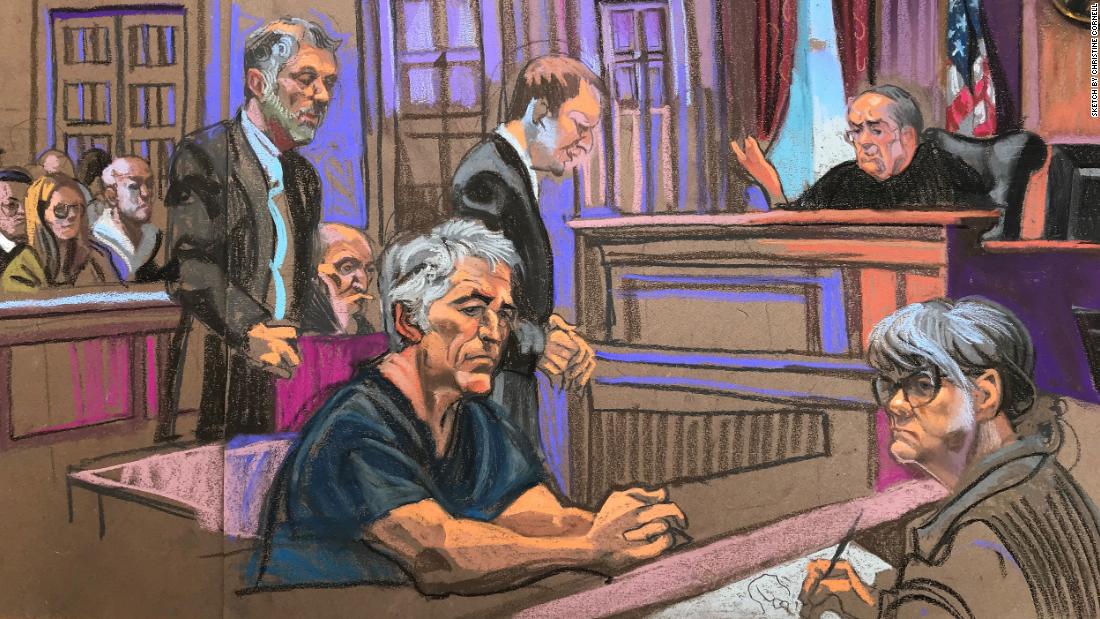[ad_1]
There, Epstein’s attorneys asked that he be given Level 1 offender status, the least restrictive level. Meanwhile, the State of New York Board of Examiners of Sex Offenders reviewed his history of abuse allegations and recommended he be classified as a Level 3 sex offender, the highest possible risk level.
But in a strange turn, the Manhattan District Attorney’s Office agreed with Epstein’s team. When the case went before the Manhattan Supreme Court in January 2011, the prosecutor asked that Epstein be labeled a Level 1 sex offender.
That argument drew pointed questions from Judge Ruth Pickholz, who said she had never seen the prosecutor’s office make a “downward argument” like this, according to an appeals court filing. She rejected the request and termed Epstein a Level 3 sex offender.
The DA’s office says that argument was a mistake based on a legal misunderstanding, and that the office later agreed with the judge’s determination. Still, the issue fits a broader critique of how authorities have handled cases involving rich and well-connected figures like Epstein.
The hedge fund manager had previously evaded similar sex trafficking charges when he secured a non-prosecution deal with federal prosecutors in Miami more than a decade ago. Instead, he pleaded guilty to two state prostitution charges, served 13 months in prison and had to register as a sex offender.
The indictment unsealed Monday accuses Epstein of running a trafficking enterprise from 2002 to 2005 in which he paid hundreds of dollars to girls as young as 14 to have sex with him at his homes in Manhattan and in Palm Beach and that he paid some of his victims to recruit other girls for him to abuse.
Manhattan DA says this was a legal error
Just months after Epstein’s sex offender court hearing, the Manhattan DA’s office said its argument was a mistake and had been based on a misunderstanding of the relevant law.
“In reaching that conclusion, the People apparently relied on a combination of a mistaken interpretation of the governing legal standards and certain secondhand information about the Florida case,” DA Cyrus Vance Jr. wrote in an August 2011 briefing to an appeals court.
The filing explained that the prosecutor in court thought that the lack of an indictment in Florida should be interpreted as strong evidence the offense did not occur. But that was not what the law said, the DA’s Office wrote in the filing.
On Tuesday, Vance’s director of communications Danny Frost told CNN that the issue was a legal error.
“The District Attorney’s office promptly filed briefs with the appellate court which acknowledged the error by the Assistant District Attorney and strenuously argued that Epstein should receive the highest sex offender status,” Frost said in a statement.
“D.A. Vance was not made aware that the Manhattan D.A.’s Office even had this SORA matter, or any matter involving Jeffrey Epstein, until well after the hearing occurred and only when the office corrected its legal error on appeal.” SORA is the acronym for the Sex Offender Registration Act.
Epstein’s sex offender status
Epstein was not under supervision as part of his sex offense status, a fact that attorney David Boies took issue with.
“There was no supervision. Nobody was keeping track,” said Boies, who represents three women who have publicly accused Epstein of sexual abuse. “It left the past victims of Epstein without any justice and exposed the future victims of Epstein to abuse that should have been avoided.”
However, constant supervision is not the primary point of the sex offender registry, said Roger Canaff, a former child abuse prosecutor.
“The Sex Offender Registry is not like probation,” he explained. “With the sex offender registry, you don’t have to report on everything you’re doing. But you need to regularly report where you live and, if asked, need to report certain facts about you and certain things you use, particularly for communication.”
Generally, Level 3 offenders are allowed to travel overseas but need to notify the registry of their location within 10 days.
“I don’t see anything that New York could have done differently,” he said.
[ad_2]
Source link




